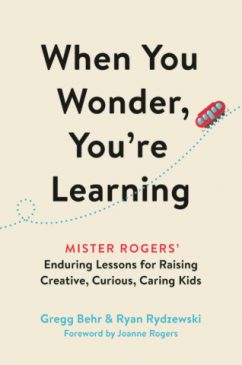Like many of you, we’ve been thinking a lot about the future. What do we want to take with us from the time before the coronavirus? What’s best left in the past? How do we want to live as we stagger, sore-armed, back into society?

If we’ve learned anything from the past year, it’s that collaboration carried us through. Working together is what kept kids learning when the pandemic sent them home. It’s what developed vaccines faster than ever before. Again and again, in almost every way, collaboration served us better than the cutthroat competition that we once considered “normal.”
Of course, there’s nothing inherently wrong with competition. It’s often how we push ourselves further, learn to cope with disappointment, and celebrate our successes as athletes, artists, and scientists. But when life itself becomes a contest, competition quickly grows toxic. The idea that one person’s success can only come at the expense of someone else, for example, breeds anxiety on one end of the spectrum and violence on the other. You only have to look to a given day’s headlines to find the latest tragic example.
So here’s a proposal for our post-pandemic future: Let’s follow the lead of two television luminaries.
“The press just wanted to create a rivalry between us,” Joan Ganz Cooney once said of Fred Rogers. Their respective programs had debuted just a year apart and had long been lumped together. Sesame Street and Mister Rogers’ Neighborhood were both hailed as groundbreaking innovations, but also criticized for their differences. While some called Sesame Street too fast and frenetic, others dismissed the Neighborhood as touchy-feely “psychobabble.”
Kids, of course, loved them both. And so their creators made an agreement. “[Rogers] and I just made up our minds that we would lock arms” and work together, Cooney explained. That agreement led to one of the most delightful crossovers in television history.
In May 1981, Rogers visited Sesame Street, where he judged a footrace between Big Bird and Mr. Snuffleupagus. Though Big Bird won handily, the victory came with concern: What might the outcome do to Snuffy’s self-worth? Here, Rogers offered some timeless advice:
The scene’s message is that no competition should stand in the way of friendship — that no matter who wins or loses a contest, we’re all part of a larger human (or puppet) family. And it’s essential that we treat each other accordingly.
As we detail in our book, When You Wonder, You’re Learning: Mister Rogers’ Enduring Lessons for Raising Creative, Curious, Caring Kids, there’s mounting evidence that this message matters. In 2008, Google launched Project Oxygen, a multi-year effort to determine which behaviors make great managers. Though Google had long assumed that the most successful programmers would also be the best bosses, Project Oxygen shattered that assumption. In fact, the company’s researchers found that the three most important behaviors among top managers were 1) being a good coach; 2) empowering other team members; and 3) creating an inclusive team environment that shows concern for other people’s success and wellbeing.
Imagine what we could do for young people by prioritizing behaviors like these in our homes, classrooms, and out-of-school spaces. What if, like Cooney and Rogers, we led by example, showing children that working together is more valuable than winning? Research suggests a powerful effect: “[When] people work together for group goals, there are a number of desirable effects on people’s feelings for one another,” write Rachel Lotan and the late Elizabeth Cohen in their book, Designing Groupwork. “When groups engage in cooperative tasks, they are more likely to form ties, to trust one another, and to influence one another than when the task stimulates competition among members.”
Rogers himself put it another way. “What really matters is helping others win, too,” he once said, “even if it means slowing down and changing our course now and then.”
As Big Bird could tell you, Mister Rogers was right. Let’s make “helping others win, too” our mantra as we build our post-pandemic future.
Gregg Behr is executive director of The Grable Foundation and founder of Remake Learning. Ryan Rydzewski is an award-winning science and education reporter. Their new book, When You Wonder, You’re Learning: Mister Rogers’ Enduring Lessons for Raising Creative, Curious, Caring Kids, is now available from Hachette. Learn more at whenyouwonder.org.

